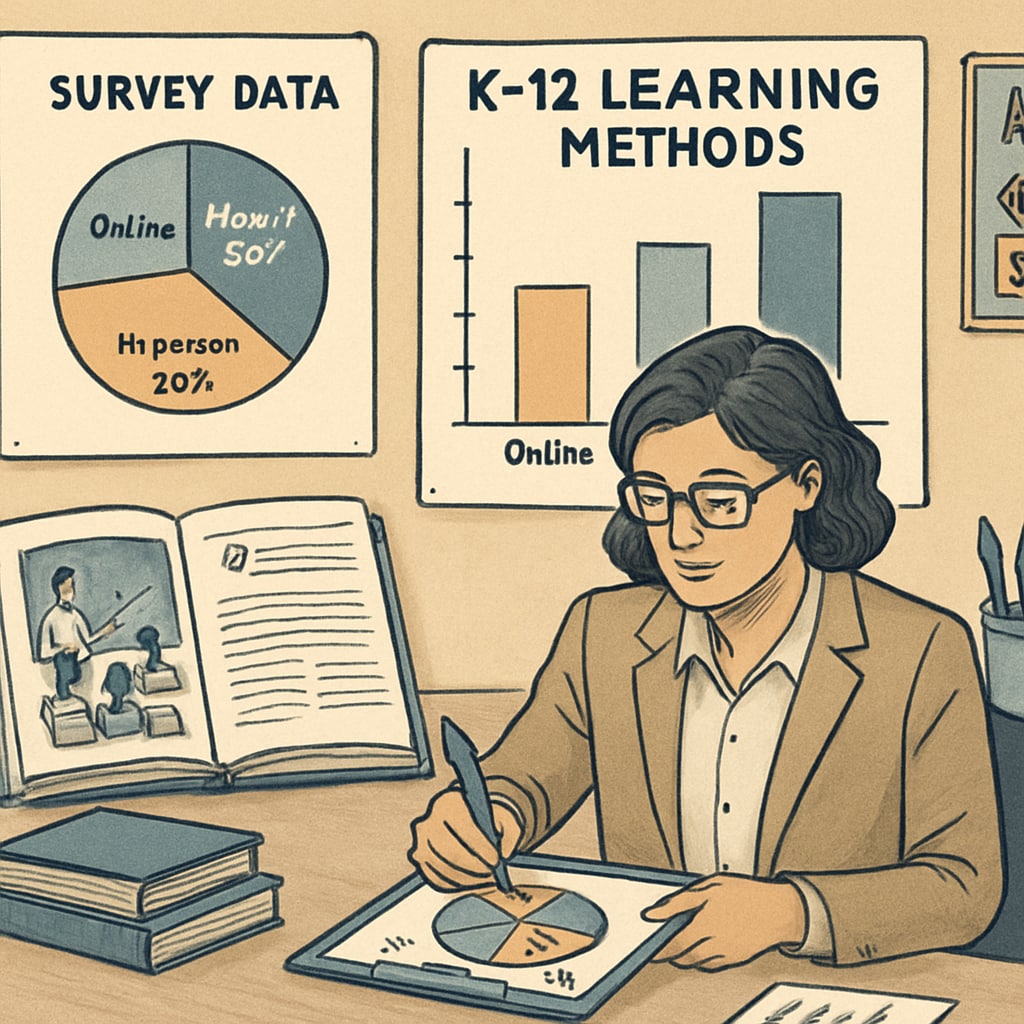Understanding effective learning methods is essential for transforming K12 education. By conducting a comprehensive survey to gather data about student learning techniques, educators can bridge the gap between theoretical models and real-world application. This initiative aligns with the growing need for evidence-based strategies in education, ensuring that learning methods are tailored to meet diverse student needs and drive success.
The Role of Surveys in Educational Research
Surveys play a critical role in educational research by providing structured insights into how students learn best. Through targeted questionnaires, researchers can identify patterns, challenges, and opportunities within K12 education. For example, they can uncover whether visual aids, group discussions, or hands-on activities yield better outcomes for specific age groups or subjects.
- Surveys help in gathering large-scale data quickly and efficiently.
- They connect theoretical concepts with practical applications.
- Responses offer a diverse perspective from students, teachers, and parents.
As a result, these surveys become a cornerstone for developing innovative learning methods that resonate with students’ real-world experiences.

Data-Driven Education: Bridging Theory and Practice
Data-driven approaches are reshaping the education sector. By analyzing responses from surveys, researchers can pinpoint effective strategies that might otherwise remain unnoticed. For example, a Britannica article on statistics highlights how data analysis can reveal trends that drive informed decision-making.
In addition, surveys provide actionable insights for educators, helping them adapt curricula or teaching styles. For instance:
- Discovering the impact of personalized learning techniques.
- Evaluating the success of digital tools in enhancing engagement.
- Understanding cultural and socio-economic factors influencing learning.
These findings not only enhance classroom experiences but also influence policy-making on a broader scale.

Engaging Stakeholders for Holistic Educational Transformation
Transforming education requires collaboration among all stakeholders—students, teachers, parents, and policymakers. Surveys serve as a unifying tool, gathering diverse viewpoints to create a balanced and inclusive approach to learning. For example, engaging parents through surveys allows researchers to understand home-based challenges that may affect student performance.
Furthermore, educators benefit from these surveys by gaining insights into their teaching methods. A Wikipedia article on educational psychology explains how understanding cognitive and emotional aspects can improve teaching effectiveness. Therefore, surveys act as a bridge between individual experiences and communal solutions.
Call to Action: Join this initiative by participating in the survey on effective learning methods. Your input is valuable in shaping the future of K12 education and empowering students with tools for success.


